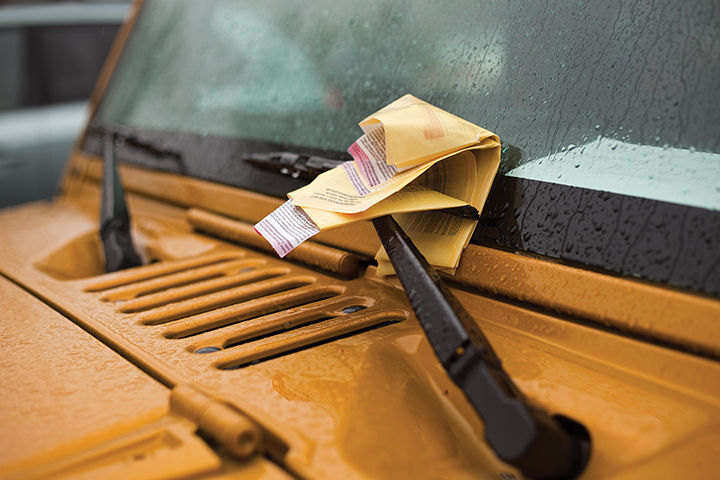In fiscal 2016, University of Maryland student ticket appeals were denied almost seven times more than the appeal denials of both visitor and faculty tickets combined, according to the 2015-16 DOTS Annual Report.
Students’ appeals were denied 55.6 percent of the time, or 4,037 students out of 7,254. But for faculty and visitors, it was 5.3 percent and 3.1 percent, respectively.
David Allen, Department of Transportation Services director, said he attributes this discrepancy to the different people reviewing the appeals. For student appeals, there is a group of student employees who evaluate each case and make a decision based on “how they’ve walked this campus and what they believe to be reasonable,” Allen said. He noted that the student employees who handle student appeals have to be accountable for decisions in case people call questioning them.
“Whenever a student [employee] makes a decision, the student has to write a paragraph of why,” he said. “If any student calls in and says they don’t understand why that decision was made, the person who answers the phone can read the reasoning to them.”
On the other hand, all of the appeals for faculty and visitors go through one DOTS employee who has worked there for a long time, he said. This person handles appeals for the city of College Park as well as DOTS. Additionally, faculty and visitors don’t have the option of a second appeal, which is available to students.
“They are completely different processes,” Allen said. “If one changes, especially the student side, it’s because there is a different crop of students that make these decisions every year. Sometimes they are more strict and conservative, and sometimes they are more liberal.”
In fact, while the percentage of student appeal denials is significantly higher than the other two groups for fiscal 2016, it is significantly lower than in prior years. The denial rate remained above 70 percent during the span of fiscal 2013 to fiscal 2015. This means the rate of student appeal denials actually dropped last year by at least 15 percent.
Despite the policies that are in place for students, senior criminal justice major Morgan Dona’e Comer said she got a ticket and towing fee over winter break but never received an email about her car being towed while she was away for the day.
“I was gone for that day … I didn’t know where the car was so I thought it was stolen,” Comer said. “And then I ended up calling campus police, and they were like, ‘Oh yeah, your car was towed.’ Now I’m actually getting the emails, but back then I had checked online to see if it was okay [to park there], and it was, so I didn’t think it was fair.”
Valerie Goubeau, DOTS assistant director, said the department is not trying to penalize students and wants “to encourage people to park according to the regulations.”
Goubeau said she attributes the gap to the different needs that students have with parking on the campus. Using herself as an example, she said she parks in one spot as a staff member, and she walks to other places on the campus if necessary.
“When you look at students, they may have classes on one end of campus, and they may live on another part of campus,” Goubeau said. “And they may not want to go to the gym when it’s dark outside, and they may not want to take the bus when it’s cold outside, and so there are lots of factors and campus destinations that students are headed to.”
Ultimately, she said, it’s a matter of who is willing to take the risk of getting a ticket and who would appeal a ticket just for the sake of appealing.
“We also just see a lot of students who are like, ‘I’m going to try for it,'” Goubeau said. “Some people just want to ask, and if it can even be reduced, that’s a win for many students.”



